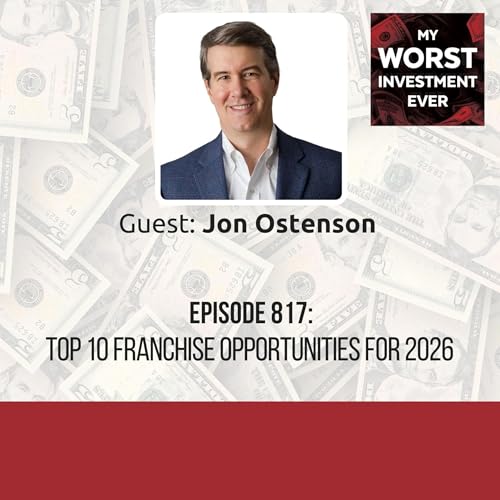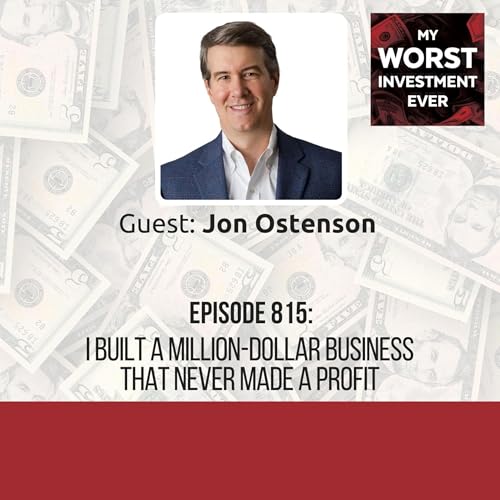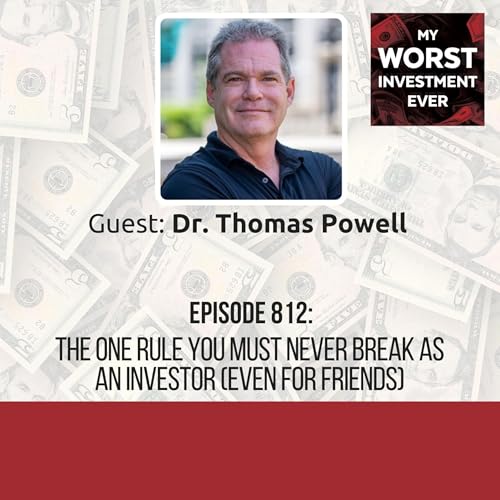BIO: Jon is the Founder and CEO of FranBridge Consulting, a 2-time Inc. 5000 company, and a leading franchise consultant.
STORY: Jon believes franchising remains one of the most effective ways to build durable income, especially when investors focus on operational discipline and unit economics. He shares his top franchise categories for 2026.
LEARNING: Look for businesses with repeat customers, operational discipline, proven unit economics, and leadership teams that have already made their mistakes.
Guest profileJon Ostenson is the Founder and CEO of FranBridge Consulting, a 2-time Inc. 5000 company, and he is a top 1% franchise consultant. Jon is also the author of the bestselling book, Non-Food Franchising. Jon draws on his experience as a former Inc. 500 Franchise President and Multi-Brand Franchisee in helping his clients select their franchise investments.
For many aspiring business owners, the biggest financial losses don't come from bad intentions. They come from underestimating complexity, overestimating scalability, or betting everything on an unproven idea. Jon Ostenson knows this lesson intimately.
As the founder and CEO of FranBridge Consulting and franchise consultant, Jon has spent years helping entrepreneurs shortcut costly mistakes by investing in proven, non-food franchise models.
In Episode 815: I Built a Million-Dollar Business That Never Made a Profit, he openly shared how he once built a million-dollar business that never made a profit. That experience now informs how he evaluates opportunities with discipline, structure, and risk control.
Looking ahead to 2026, Jon believes franchising remains one of the most effective ways to build a durable income stream, especially when investors focus on operational discipline and unit economics. Below are his top franchise categories for 2026, and more importantly, why they help investors avoid the common traps that sink new businesses.
Why Franchising Can Help Investors Avoid Big MistakesOne of the most common investment errors is assuming passion alone will overcome operational complexity. Many entrepreneurs love an idea but underestimate the systems, staffing, pricing discipline, and capital required to make it profitable.
Franchising addresses this risk by offering something rare: a business model with historical data. Instead of guessing whether pricing works or whether customers will pay, franchisees can examine real-world performance, talk to existing owners, and follow systems that have already survived market cycles, helping investors feel confident in demand-driven, structured opportunities.
Jon emphasizes that franchising is not about eliminating risk. It's about trading unbounded risk for structured risk, supported by systems, training, and benchmarks.
1. Cost Mitigation Consulting: Profits Without PayrollCost-mitigation franchises help small and medium-sized businesses reduce expenses by analyzing vendor contracts, utility bills, shipping costs, and other fees. Clients pay nothing up front and instead share a percentage of the savings.
What makes this model compelling is its simplicity. There's no inventory, no employees required, and no large infrastructure investment. Franchisees focus on business-to-business sales...
 32 m
32 m 41 m
41 m Jan 5 202648 m
Jan 5 202648 m 26 m
26 m 21 m
21 m 29 m
29 m 23 m
23 m 28 m
28 m
